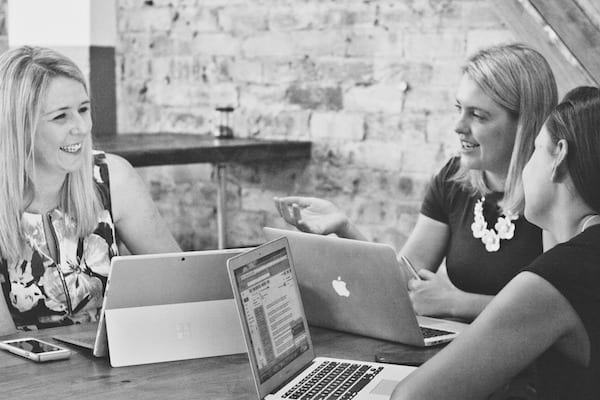Not because I don’t think more of us should be working in ways that actually suit our circumstances. But rather because I know that it’s within our capacity to simply make all office work flexible, thereby making the term ‘flexible work’ redundant.
We’ve been having conversations about flexible work for a very long time, and yet it’s still in many ways considered something that’s available for new mothers, rather than the general workforce. We’re still seeing the consequences of office life burnout, and too many women feeling they have no other option but to walkaway from their inflexible roles.
Indeed, for as long as work is considered a place you ‘go’ rather than something you ‘do’, we’ll be continuing to talk about the need for flexible work. We’ll also continue to live by Parkinson’s Law, which states that “work expands so as to fill the time available for its completion.”
While there are some great examples of large corporates making significant shifts is this space — particularly via moves to hot desking — accessing such flexibility is still not a reality for all employees, particularly those working in small to medium sized businesses.
Last year I became an ambassador for Flexible Working Day, and at the time I recall laughing at just how ‘flexible’ my work actually is. Back then my work involved running this business, supporting my partner in his business, all while managing two small kids at home. I’ve worked from too many Sydney and Melbourne cafes to count, as well as from airports, airplanes, buses, hotels, gyms, the car, play centres, everywhere. I’ve become so accustomed to working at 5am that I no longer need to to set an alarm.
But as my circumstances have again changed in the past year, I’ve mostly worked from co-working spaces, meeting our team (who also all work flexibly) when we can, and running virtual news meetings every morning. These circumstances will no doubt change again as we continue to grow Women’s Agenda.
My experience is nothing unusual for other women and men who run online businesses — we might be working longer hours than we ever have before, but in many ways have more control over how and when we put in those hours. I no longer call this ‘flexible work’, it’s work. And to be frank it’s still exhausting and sometimes overwhelming and I’m continually trying to figure out how to get more done in less time, as well as how to actually switch off.
However, my experience is a little more unusual for men and women who are employed.
That’s why I’m happy to see a wider lineup of flexible working ambassadors this year to mark Flexible Working Day, both male and female, who’re employed in big business leadership positions.
Mark Bernhard is the Chairman & MD of GM Holden and has just received a champion award for his work promoting flexible working. He works part time every second week when he takes on the role of primary career and regularly does non-traditional hours to meet his family commitments.
Meanwhile Fiona Jefferies is another to receive a champion award. She’s the CEO of Diva Works, whereby 100% of employers are able to work remotely and nine in ten of her staff work fewer than 40 hours a week.
Over the past couple of months I’ve also written about some fantastic examples of CEOs leading businesses according to their own rules and when and how work is done.
Some of my favourites include Renae Smith, who runs a growing PR business while she and her leadership team all work 20 hour weeks. This gives Renae the time she needs to manage her health, look after her school-aged kids and have hobbies on the side, like learning a language. And it makes the business efficient and well appreciated by the journalists they aim to connect with. “We’re great at getting straight to the point,” she told me at the time.
Then there is finance boss Jonathan Elliot, whose key management directive throughout 2017 was that his staff work 33% fewer hours but receive the same pay. The result was creating a five hour work day for all 28 staff at the Tasmanian-based financial services firm, Collins SBA.
Renae and Jonathan don’t call this flexible work. It’s just what they do.
They live and work off the idea that time is our most precious commodity and we should spend it wisely, and do as much as we can to enable our teams to also have the opportunity to take control over how they spend their days.
This is a smarter and far healthier approach to office work.
There are loads of great resources about flexible working over at Flexible Working Day.


